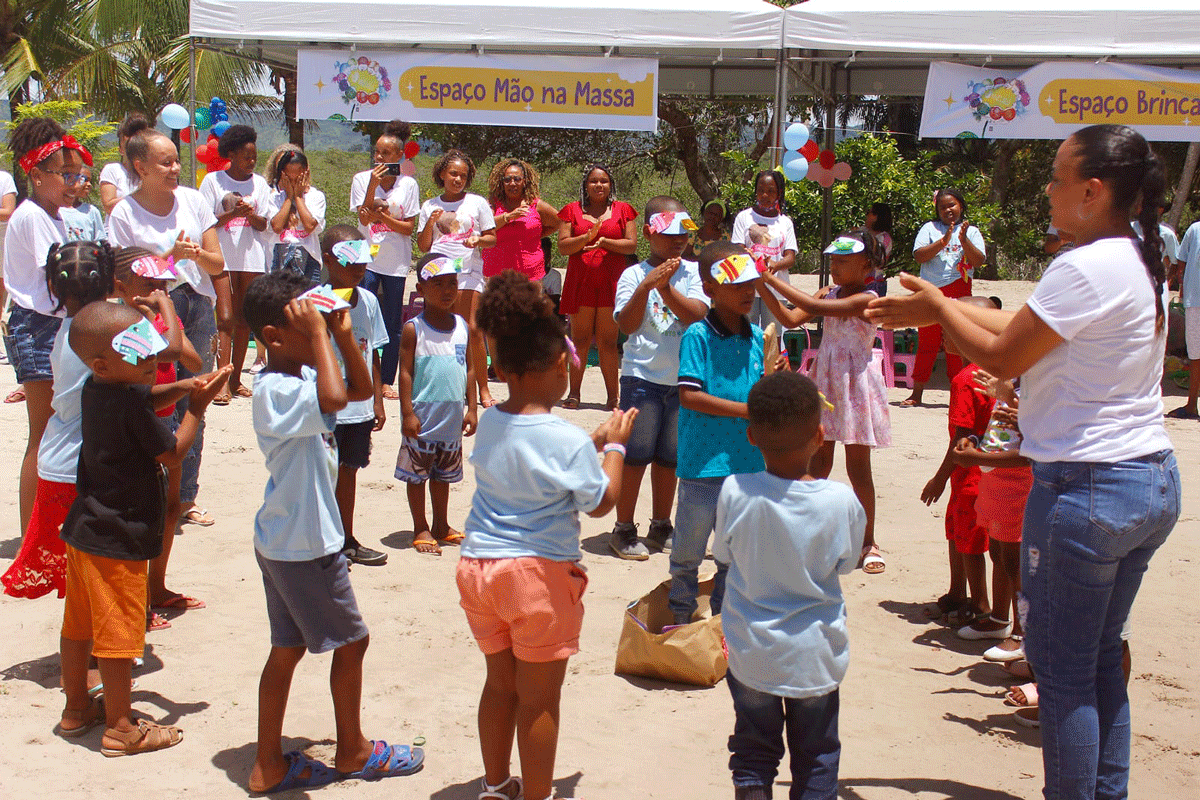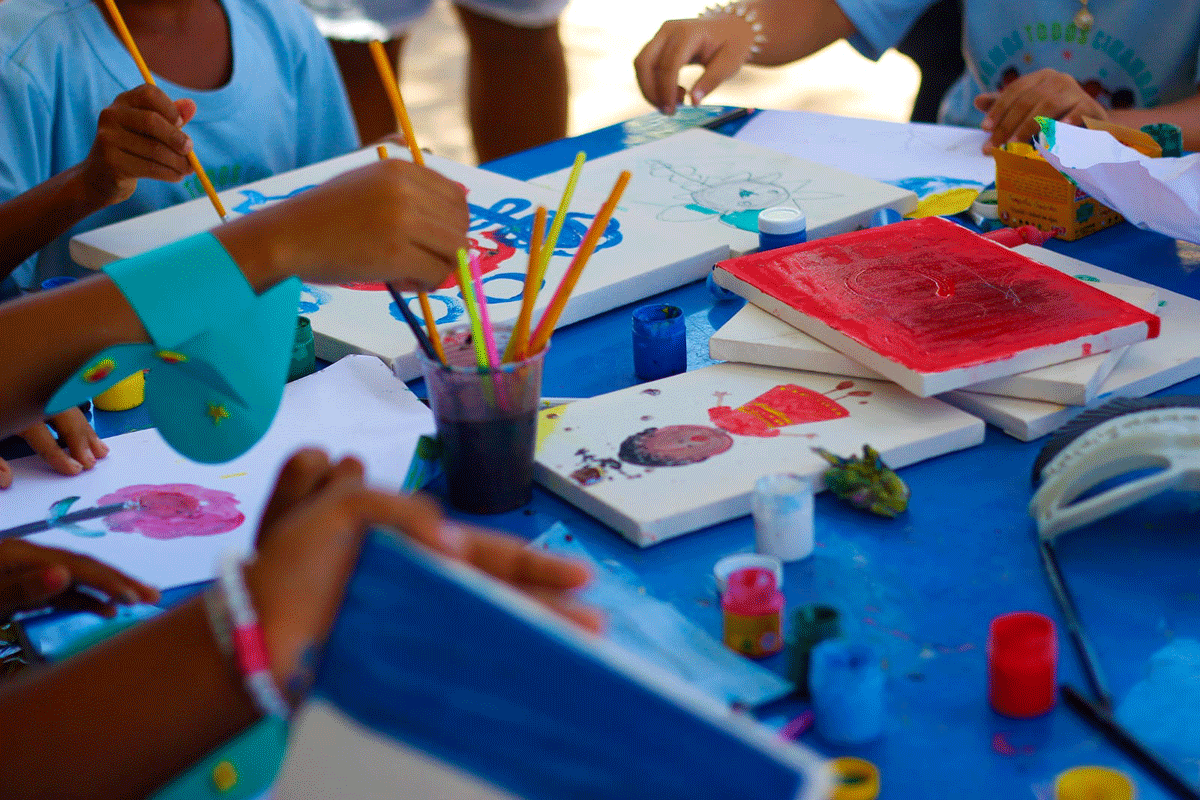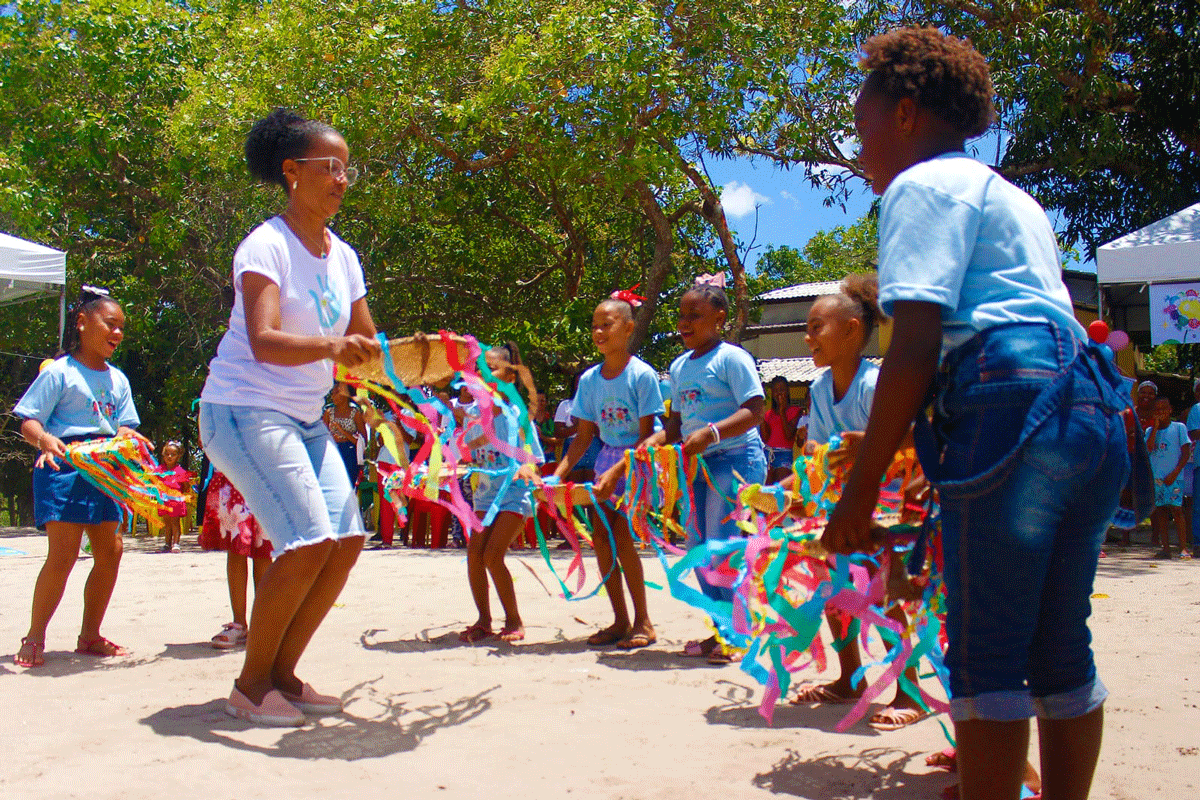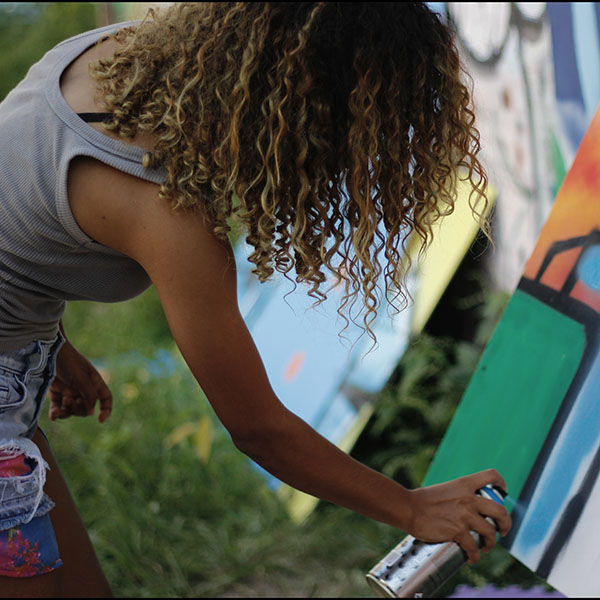Editor’s note: This blog post is also available in Portuguese.
In Brazil’s northeastern region, Instituto Mãe Lalu is employing traditional children’s songs and circle dances to boost learning and pass on ancestral knowledge.
Brazilian popular culture is plural, infused with Indigenous and African influence, and full of commemorative events, celebrations of icons and folkloric symbols, and traditional dances and music. But celebrations of popular culture have been losing ground in today’s globalized world, prompting vital discussions around the role and importance of intangible heritage as an instrument of preserving a population’s cultural memory and ancestral knowledge.
Knowing the value and significance of popular culture, the founders of Instituto Mãe Lalu in Northeastern Brazil saw cantigas de roda – playful nursery rhymes, often accompanied by circle dances – as the perfect way to develop their learning methodology, promoting the recovery of popular culture and an appreciation of elements belonging to their local community. The institute’s pedagogical project “Vamos Todos Cirandar” (“Let’s All Circle Dance”) has helped the children and adolescents of Santiago do Iguape in Bahia not only develop their reading and writing skills but also understand and value their roots, their identity, and one of the community’s main sources of income – seafood.

Santiago do Iguape is a village of fishers, shellfish gatherers, and quilombola farmers in the municipality of Cachoeira, a region with rich ancestry and African influence. Quilombos are communities that were created by Black people who fled enslavement in search of freedom and the rescue of the African cosmovision, that is, the worldview, social organization, harmonic coexistence, and relationship with the visible and invisible world of a population, based on their values, beliefs, impressions, feelings and conceptions. Today, quilombos are spaces of resistance and subsistence for their descendants.
Aurelina Souza Dos Santos was one of these descendants, born in 1913 in this territory bordering the mangrove-lined Paraguaçu River. Souza Dos Santos, better known as Mãe Lalu, became a popular educator who spread the value of learning in the community and dreamed of building an educational space for all the children of her village and nearby quilombos. She wanted not only to guarantee these children’s access to quality education but also to feed their dreams, celebrating the diversity and cultural richness of their community. Mãe Lalu, who died in 2011, was an inspiration for the entire Iguape community – including her own family. Her granddaughters, many of whom earned degrees in education, followed in her footsteps and helped realize her dream of a learning space in 2020 with the creation of Instituto Mãe Lalu.
“Talk to your students, try to find out their dream and then feed their dream,” Mãe Lalu often said.

Instituto Mãe Lalu promotes learning experiences for children and adolescents based on cantigas de roda, alongside other elements of popular culture and the local community. These experiences are guided by the Brazilian cultural tradition of sitting and dancing in a circle, which symbolizes unity, celebration, active listening, and the power of something that has no beginning or end. The institute’s innovative pedagogical methodology helps students gain valuable learning while expanding their imagination, interpersonal skills, and ability to practice ethical and social values.
The “cirandas,” which is what the institute calls its activities, are planned to integrate Portuguese and mathematics, interdisciplinary studies, and physical education. An example is the “ciranda” based on the nursery rhyme “Caranguejo não é peixe” (“Crab is not a fish”), used by the institute to deepen children’s knowledge of one of the main shellfish collected in the region – the crab – and the importance of preserving its habitat, with a practical visit to the mangrove. Furthermore, the children develop writing and reading skills using words and rhymes from the song; they use the crab ropes sold in the community as an element to practice mathematics; and they interact with other songs and active games using the idea and concept of the crab.

Instituto Mãe Lalu is a partner in Global Fund for Children’s Partnership to Educate All Kids (PEAK) initiative, supported by the LEGO Foundation, which brings together local organizations that are helping kids who have experienced pandemic-related education disruptions. As with other organizations supported by the PEAK initiative, Instituto Mãe Lalu integrates play-based learning into its educational programs, acting from the perspective of valuing the territory, recovering popular culture, decolonizing thought, and fighting racism and all forms of prejudice.
In the near term, the institute’s goals are to keep working to expand its capacity as an organization and guarantee the development of the children and adolescents it serves, using education as a tool for social transformation and as a way for community members in Santiago de Iguape and the surrounding area to recognize and claim their rights.
As the PEAK initiative turns one, GFC is highlighting the work of some of the PEAK partners who are employing innovative ways of making education more fun and appealing to children who suffered academic loss at the height of the pandemic.
Header photo: A circle dance with children and family members during an Instituto Mãe Lalu event called I Ciranda Literarte. © Instituto Mãe Lalu.



